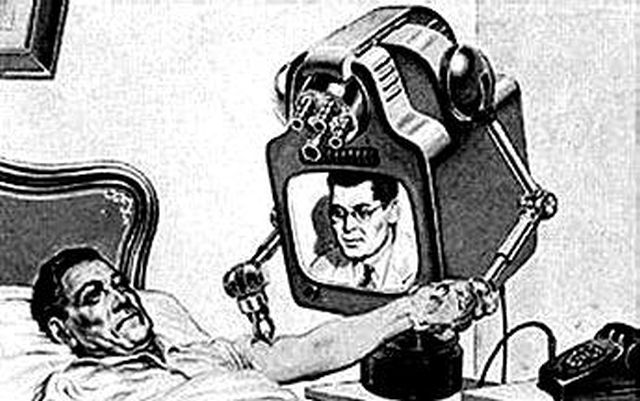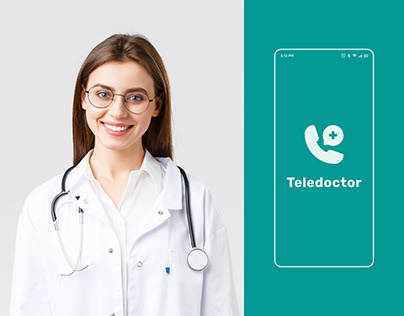Checking Out the Benefits and Obstacles of Teledoctors in Modern Health Care
As the health care landscape advances, teledoctors have actually emerged as an essential component in connecting voids in medical gain access to and effectiveness. Exactly how can the medical care market balance these advantages with the fundamental obstacles?
Expanding Access to Care
Telemedicine has become a pivotal advancement in modern healthcare, substantially increasing accessibility to look after diverse populaces. By leveraging electronic technology, teledoctors have changed the traditional medical care distribution model, making it possible for patients in remote or underserved locations to get prompt clinical appointment. This development is particularly beneficial for people residing in rural areas, where the scarcity of health care facilities and professionals frequently results in delayed or insufficient therapy.
Teledoctors are crucial in linking the void developed by geographical barriers. With digital consultations, patients can access a vast array of healthcare services without the demand for extensive travel. This is especially valuable for those with mobility concerns or persistent problems needing regular medical interest. Additionally, telemedicine improves continuity of care by enabling routine follow-ups and tracking, thereby enhancing client outcomes.
The assimilation of teledoctors into healthcare systems additionally sustains the monitoring of public health and wellness crises by facilitating quick response and triage. Throughout pandemics, as an example, virtual appointments minimize the burden on physical medical care facilities, decreasing direct exposure threats for both individuals and doctor. As telemedicine remains to evolve, it assures to improve the landscape of healthcare availability, making it more comprehensive and effective.
Cost-Effectiveness of Teledoctors
The cost-effectiveness of teledoctors is a considerable element driving their widespread adoption in health care systems. By minimizing the requirement for physical framework and in-person brows through, teledoctors provide a more budget-friendly option to typical medical care delivery.
In addition, teledoctors help with a much more efficient usage of medical care sources by lessening unneeded emergency clinic visits and hospital admissions. Patients can access timely assessments for minor conditions or follow-up care, which helps to alleviate the burden on overstretched healthcare centers. This effectiveness not just results in cost savings for doctor however likewise decreases the monetary strain on people that could otherwise deal with expensive hospital costs.
Moreover, teledoctors can help in taking care of persistent conditions a lot more effectively by giving constant monitoring and prompt interventions. This positive method can prevent difficulties, consequently decreasing lasting treatment prices. Generally, teledoctors offer a practical solution to the intensifying costs of health care, while maintaining high quality care delivery.
Enhancing Person Benefit
While cost-effectiveness plays a pivotal role in the increase of teledoctors, boosting individual benefit stands as an additional compelling benefit of this healthcare model. With the combination of teledoctors, patients can bypass the generally taxing procedure of scheduling and participating in in-person consultations.
Furthermore, teledoctors provide adaptable scheduling, enabling individuals to prepare assessments sometimes that ideal suit their specialist and individual dedications. This flexibility is very useful for people stabilizing demanding job routines or family members obligations, making sure that medical care can be incorporated flawlessly right into their lives. In addition, the ability to access medical professionals from the comfort of one's home can result in boosted client interaction and adherence to therapy strategies, as the barriers to looking for care are minimized.
The convenience offered by teledoctors not only boosts the individual experience however additionally adds to a much more receptive and efficient healthcare delivery link system, inevitably supporting far better health end results.
Addressing Personal Privacy Issues
Amid the expanding adoption of teledoctors, personal privacy concerns emerge as a considerable consideration. As health care increasingly relies upon electronic systems, ensuring the privacy of individual info becomes critical. The digitization of medical documents and using telecommunication modern technologies demand robust safety and security actions to shield delicate data from unapproved accessibility and breaches.
Doctor need to stick to stringent guidelines, such as the Wellness Insurance Transportability and Liability Act (HIPAA) in the United States, which develops national criteria for visit our website safeguarding clinical info. Compliance with such laws is essential in maintaining individual count on and guaranteeing their data is managed properly. Encryption of information, safe and secure interaction channels, and normal audits are some of the actions that can be executed to boost data defense.
Despite these procedures, difficulties continue. Cybersecurity risks are advancing, and medical care companies need to continue to be vigilant to new vulnerabilities. In addition, educating both patients and doctor regarding best methods in information personal privacy is vital. This consists of understanding the restrictions of digital interaction and the significance of safe login qualifications. teledoctors.
As teledoctors end up being much more important to medical care delivery, attending to personal privacy problems is important to make certain both the efficiency and trustworthiness of these services.

Navigating the Digital Divide
Bridging the electronic divide is an important obstacle in the prevalent fostering of teledoctors. teledoctors. This divide incorporates disparities in access to digital technology, particularly among country, low-income, and senior populaces. These teams usually do not have the necessary devices, dependable internet connection, or digital literacy required for effective participation in telehealth services. Subsequently, the advantages of teledoctors-- such as raised access and ease-- continue to be unreachable for numerous individuals who can most gain from them.
Efforts to mitigate this divide demand a multi-faceted technique. Policymakers should prioritize framework growth to improve internet gain access to in underserved locations. Furthermore, initiatives to support innovation for low-income households can play a crucial role in making certain equitable accessibility. Doctor and area organizations need to team up to provide electronic proficiency programs, empowering individuals to browse telehealth systems confidently. Moreover, developing straightforward interfaces can further improve accessibility for all demographics, especially the elderly.

Final Thought
The assimilation of teledoctors into modern-day healthcare uses significant benefits, including raised access to care, cost-effectiveness, and improved person benefit. Nonetheless, challenges such as personal privacy issues, the electronic divide, and cybersecurity threats have to be her latest blog addressed to make best use of these advantages. By carrying out robust data defense measures, enhancing electronic literacy, and making sure safe and secure technical infrastructure, the capacity of teledoctors can be completely understood, promoting equitable healthcare delivery and changing the medical care experience for all individuals.
